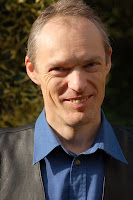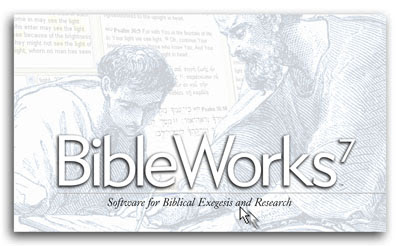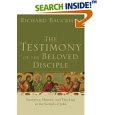
Society of Biblical Literature's International Cooperation Initiative (ICI) has put in place a system to provide
free electronic access (in PDF files) to selected SBL publications to scholars and students in under-resourced countries who would not otherwise have access to this scholarship. Persons who are identified through SBL's technology as being from a country with a GDP per capita substantially lower than the average GDP per capita of the USA and the European Union will be able to have access to these resources.
The good news is that Malaysia is classified as one of those countries that benefits from SBL's online resources. The IP address will be tracked, so if you access the internet outside of Malaysia, you will not be able to have access to these files, unless you access it from a country that is classified to benefit from the ICI initiative.
Occasionally, it's "nice" to know we are still a "poor" nation!
So check out and enjoy the following books that are available for free to readers in Malaysia. All you need to do is to click
here and follow the links of the books listed to download the PDF files.
Horsley, Richard A., ed. Oral Performance, Popular Tradition, and Hidden Transcript in Q. Semeia Studies 60. Atlanta: Society of Biblical Literature, 2006. (240 pages, 1.1 MB)
De Troyer, Kristin and Armin Lange, eds., Reading the Present in the Qumran Library: The Perception of the Contemporary by Means of Spiritual Interpretation. Symposium 30. Society of Biblical Literature, 2005. (244 pages, 1.5 MB)

Van Voorst, Robert E.,
Building Your New Testament Greek Vocabulary, Third Edition. Resources for Biblical Study 43. Atlanta: Society of Biblical Literature, 2001. (131 pages, 1.7 MB)
Draper, Jonathan A., Orality, Literacy, and Colonialism in Antiquity. Semeia Studies 47. Atlanta: Society of Biblical Literature, 2004. (248 pages, 1.4 MB)
Kennedy, George A., Invention and Method: Two Rhetorical Treatises from the Hermogenic Corpus. Writings from the Greco-Roman World 15. Atlanta, Society of Biblical Literature, 2005. (291 pages, 1.5 MB)
Nissinen, Martti, Prophets and Prophecy in the Ancient Near East. Writings from the Ancient World 12. Atlanta, Society of Biblical Literature, 2003. (296 pages, 12.5 MB)
Albertz, Rainer, Israel in Exile: The History and Literature of the Sixth Century B.C.E. Studies in Biblical Literature 3. Atlanta: Society of Biblical Literature, 2003. (484 pages, 4.3 MB)
Landes, George M., Building Your Biblical Hebrew Vocabulary: Learning Words by Frequency and Cognate. Resources for Biblical Study 41. Atlanta, Society of Biblical Literature, 2001. (232 pages, 679 KB)
Barr, David L., ed., Reading the Book of Revelation: A Resource for Students. Resources for Biblical Study 44. Atlanta: Society of Biblical Literature, 2003. (212 pages, 1.2 MB)
Draper, Jonathan A., ed., Orality and Colonialism in Southern Africa. Semeia Studies 46. Atlanta: Society of Biblical Literature, 2004. (278 pages, 1.8 MB)

Georgi, Dieter,
The City in the Valley: Biblical Interpretation and Urban Theology. Studies in Biblical Literature 7. Atlanta: Society of Biblical Literature, 2005. (398 pages, 2.4 MB)
Lindenberger,, James M., Ancient Aramaic and Hebrew Letters, Second Edition. Writings from the Ancient World 14. Atlanta: Society of Biblical Literature, 2003. (208 pages, 1.7 MB)
Moreland, Milton C., Between Text and Artifact: Integrating Archaeology in Biblical Studies Teaching. Archaeology and Biblical Studies 8. Atlanta: Society of Biblical Literature, 2003. (254 pages, 1.8 MB)
Mykytiuk, Lawrence J., Identifying Biblical Persons in Northwest Semitic. Academia Biblica 12. Atlanta: Society of Biblical Literature, 2004. (347 pages, 9.6 MB)
Cook, Stephen L. and Corrine L. Patton, eds., Ezekiel’s Hierarchical World: Wrestling with a Tiered Reality. Symposium 31. Atlanta: Society of Biblical Literature, 2004. (304 pages, 1.5 MB)
Reeves, John C., Trajectories in Near Eastern Apocalyptic: A Postrabbinic Jewish Apocalypse Reader. Resources for Biblical Study 45. Atlanta, Society of Biblical Literature, 2005. (278 pages, 1.4 MB)
Singer, Itamar, Hittite Prayers. Writings from the Ancient World. Atlanta, Society of Biblical Literature, 2002. (160 pages, 562 KB)
Jones, F. Stanley, ed., Which Mary?: The Marys of Early Christian Tradition. Symposium 19. Atlanta: Society of Biblical Literature, 2002.



























 The students appeared to be very attentive.....
The students appeared to be very attentive..... ...compared to the rather "bored looking" lecturers sitting at the last row... :-)
...compared to the rather "bored looking" lecturers sitting at the last row... :-)


